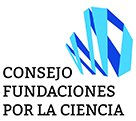Being a Catalan woman who barely spoke Swedish did not hinder Neus Visa from teaching at the Department of Molecular Biology and Functional Genomics of the Stockholm University and, with time, from mastering the Swedish language. Teaching accounts for only 25% of her professional life. The rest of her time is invested in trying to understand the role of RNA-related proteins. Neus Visa (Barcelona, 1962) has been living in Sweden for more than thirteen years. In spite of assuring that her process of adaptation to the Swedish way of life is never quite completed, her private life and her scientific career are closely bound to this Northern country.
She arrived in Sweden in 1992 with a postdoctorate scholarship at the Karolinska Institutet, known worldwide as the institution that appoints the laureates for the Nobel Prize of Medicine every year. She was connected with this institution for seven years, including a full year of maternity leave. As Neus Visa acknowledged, this measure allowed her to raise her daughter without breaking her professional career –this being one of the many advantages offered by this paradigmatic ‘Welfare State’ country.
Our Catalan researcher also sees important differences between Sweden and Spain, for example in the degree of internationalization. The great diversity of nationalities within the different scientific institutions of the country, says she, is a key aspect in the achievement of a dynamic, effective atmosphere at work. In this sense, she fully agrees with another three colleagues participating in the Science in Europe set of lectures organized jointly by Aula El País and the Esteve Foundation. The four of them shared their experience as Spanish researchers working in renowned European centers.
All four researchers also agreed in that the level of fundings assigned to science by their host countries is quite higher than ours. Nonetheless, while budgets assigned to research groups in Sweden are big, Dr. Visa nuanced that these fundings are decreasing in Sweden, as opposed to relevant improvements in Spain.
The differences, however, are still profound. A young researcher in Sweden may be offered 35,000 euros a year for the development of new projects. Much to the amazement of her (mostly Spanish) audience, Neus Visa considered that this quantity was modest –which went to prove that her process of adaptation is now complete and that she is closer to Sweden than to Spain.




